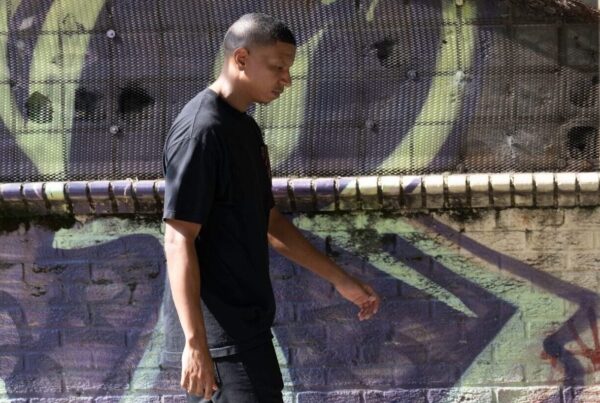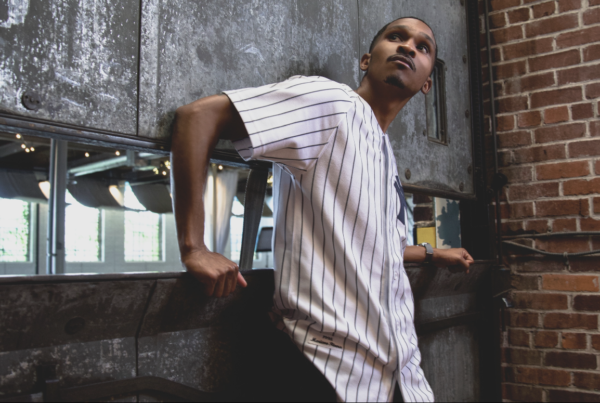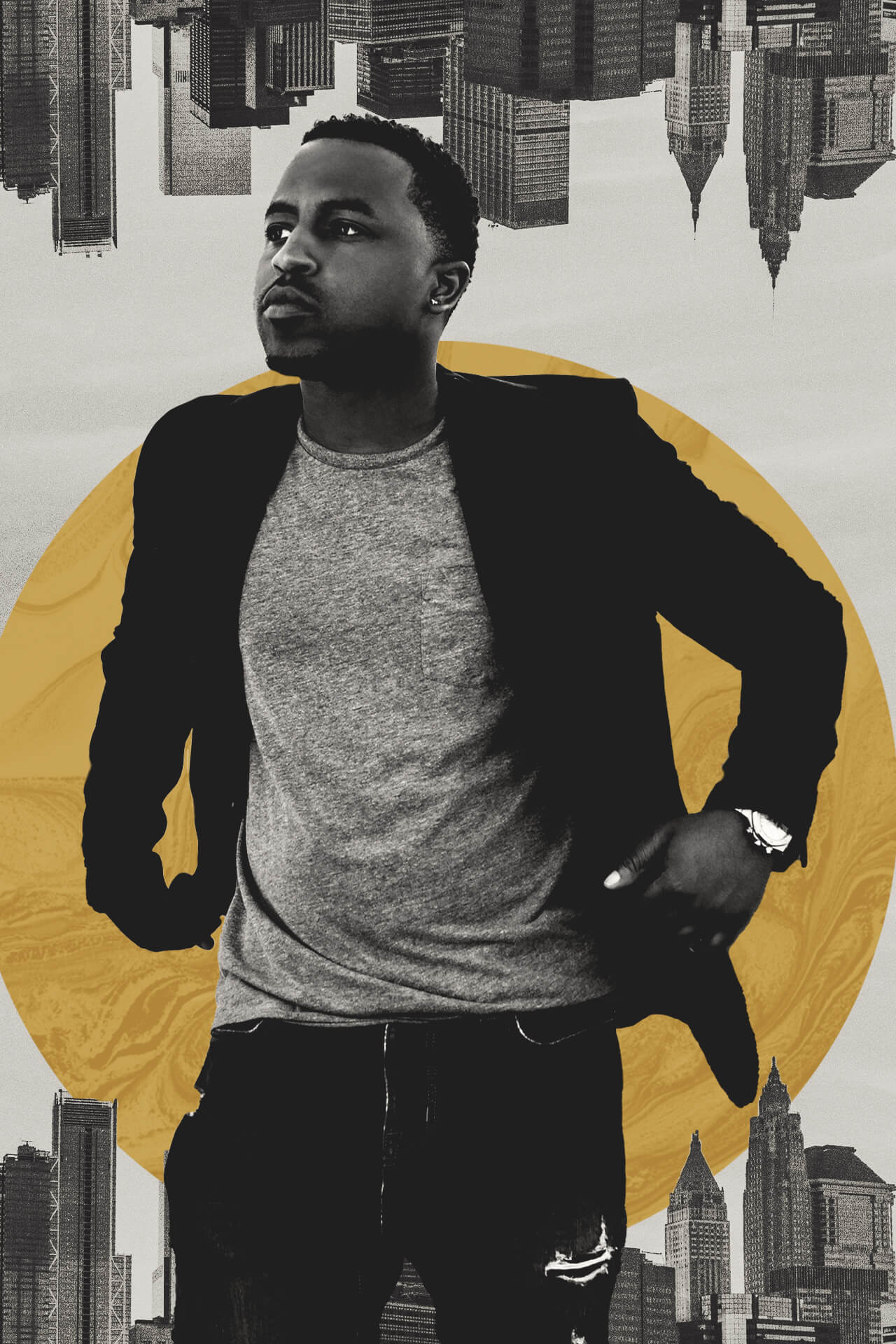My boss came to me and told me that he needed me to go and give a presentation. “Where?” I asked. To a group hosting an event at an exclusive country club. Already, the gears started to turn in my mind. I already anticipated what I may face and a slight feeling of dread came over me. “Ok, I have to prepare myself.”
The day before I was scheduled to give the presentation, all speakers and guests were invited to dinner at the club. I put on a tie and jacket. Although other people might be dressed casually, I knew I could not. The club was about a two-hour drive away and it was raining along the way. I managed to arrive a little after everyone else but right before dinner. As I am walking towards the dining room another man approaches me. “Do you know where the bathroom is?” he asked. “I have no idea,” I respond. I actually wanted to know where the bathroom was as well after being on the road for two hours in the rain. “You don’t work here?” he shot back rather indignantly. Sigh. “No” I responded. “Oh I’m sorry,” he said with a hint of shame but clearly not aware of the magnitude in which this small exchange affected me.
You see, the minute I knew where I was going, an exclusive country club in the middle of nowhere, I knew what I was possibly in for. I had prepared myself psychologically for it. I had been down this road before. That is why I put on a tie and jacket; I needed to do everything I could to look like I belonged. But still, it was to no avail. It didn’t matter. I was an African-American guy and no matter how I presented myself, no matter how smart I was, it was still assumed that the only reason I could possibly be in an exclusive country club like that was because I worked there. However slight or trivial this may seem to you, it was yet another small reminder to me that I live in a culture and a world that assumes that I am not good enough to belong, especially in some places. It is these small reminders, these slight and trivial indignities, that add up over time to feel like a burden to bear.
I get it. I am a bit used to it at this point. Enough to anticipate and to prepare myself for it. It is the burden I carry in a world that has not yet fully accepted if and where I belong. I carry the burden of low expectations and the constant need to prove or validate myself when the same is not required of others. Even with my experience and expertise in my field, I still have to earn the dignity that others are afforded freely. Whereas others may start out on the ground floor, I must start in the basement first and work my way up in the perceptions of others. My successes must be an overachievement to warrant acceptance while my failures are magnified as if confirming the suspicion that I am inferior. My margin for error is smaller and my hurdles are raised a bit higher. Where the best is assumed of others unless proved otherwise, the worst is assumed of me and the burden is on me to prove the best. This is the world as I see it. The man that day at the country club would have never known that. He has the luxury of living in a world that assumes he belongs. I don’t.
To others, I carry the weight of every other man that looks like me on my shoulders. The fear he may invoke in others who don’t understand him is laid at my feet. Suspicion of him becomes suspicion of me also. His perceived shortcomings, mine as well. His failure, my failure. It is assumed that we are one in the same until proven otherwise. Conversely, if proven otherwise, I carry the assumption that I must be an anomaly. If I don’t fit the mode that has automatically formed for me, then I must somehow be “unique”. I must be the exception, not the rule. In order to be accepted, I am taught to deny myself, to hide the truth. Just so someone’s broken and flawed illusion of the world may remain intact.
Moreover, I realize that what I experience every day, for me, is inconvenient and can often be annoying. But for others, the stakes are much higher. For other men who look like me in our culture, this burden can become consequential and even deadly. When someone automatically assumes something negative about you just because of the way you look, it could often lead to events that cost your life. Recent history in our country bears witness to this.
Still, I am under no illusion. My favorite line from Dr. Martin Luther King’s “I Have a Dream” speech is “I have a dream that my four little children will one day live in a nation where they will not be judged by the color of their skin but by the content of their character.” Although this is the ideal, that we can be judged by our character and not by the color of our skin, this too often is not the reality. We still live in a world full of hidden biases and false assumptions. And, if we are really honest, everyone has to deal with this to some degree. Whether it’s because of how you look, where you are from, your height, your weight, or whatever. Assumptions are made about us based on something. And if we are honest, we do the same thing to other people. It is a part of human nature. We assume things about others and assumptions are made about us. That’s life.
However, the set of assumptions made of men that look like me are particularly burdensome. Deep within the subconscious of our culture, we are assumed to not only be inferior, but outside the margins of what is acceptable and desirable, and perhaps dangerous. Unless we can perform athletically or have some talent to entertain, we don’t belong.
How should we respond? We can get mad and live angry but that doesn’t solve anything. We could just ignore it but ignorance left unchecked can often have deadly consequences. We need not look too far in the past in our culture to see how this plays out. Then what do we do about it?
First of all, as a man, you have to understand that your goal is not to live for the acceptance of others. God is the only one that needs to accept you and He should be the only one you live to please. And, unlike people, His acceptance of you is unconditional and you have value with Him simply because you are who you are. People are always making assumptions about you, whether you realize it or not, and trying to correct all the wrong assumptions that people have of you is a waste of time and energy. What people think about you should not be the measure by which you define yourself as a man. You have to know who you are, know that you are accepted by God, and be secure in this. When you do, it won’t matter what people think or assume.
Moreover, the best way to confront ignorance and false assumptions is to learn how to rise above them. You rise above them by simply succeeding and being your best self in spite of the ignorance and false perceptions. Instead of complaining, his response to the low expectations placed on him is to constantly live a life defying those expectations. His response to false assumptions made of him is to be confident in who he is and to resist the urge to try to prove anything to anybody. His character and his success speak for him and it forces people to confront their own hidden biases for themselves. You see, there was no need for me to get indignant when that man at the country club made a biased assumption of me. I knew the next day he would be sitting in the audience listening to me speak. My excellence spoke for me and his ignorance became his burden, not mine.
This isn’t to say that there aren’t times when you have to call out ignorance and expose it for what it is. Oftentimes a man will see it as more necessary to expose ignorance when he is defending others who can’t stand up for themselves than when defending himself. That is what Dr. King and those who stood alongside him fought for. His dream of a society where we can be judged by character rather than skin color, or whatever other external feature, was an aspirational society. It was a dream, something that he hoped for. But he knew it did not exist in his day and it still doesn’t exist in ours. He, like we, had to fight for it. Each time we overcome ignorance, every time we confront it with our character, every time we expose it with our success, each time we refuse to give in to it, we are taking a step closer to fulfilling that dream.
In the end, the ignorance and false assumptions of others aren’t really the burden I bear. When you expose ignorance with character and greatness it no longer becomes your burden. It becomes the burden of others who hold these views. However, we are still not off the hook. As a man, my true burden is to look beyond all the negative and false assumptions made of me and to be proud and confident in who I am, not giving in to the pull of ignorance in others. My burden is to be excellent in all that I do and force others to wrestle with their internal biases. And my burden is to confront ignorance when I see it, especially for those who can’t defend themselves. That is my duty, that is my responsibility, that is my burden. What’s yours?







